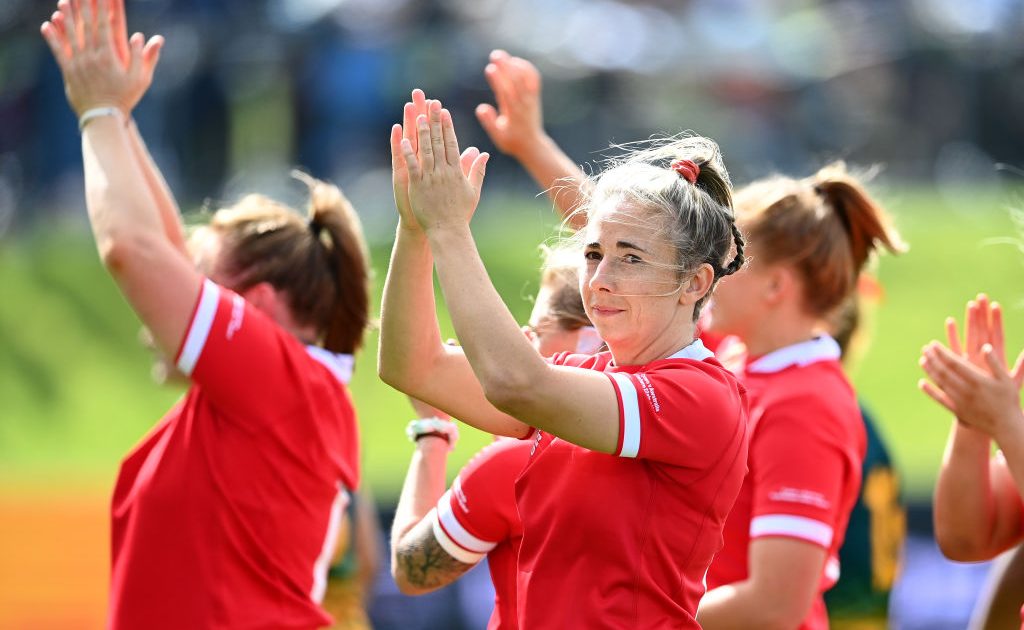Elinor Snowsill: ‘Like a superpower- over half the squad were on their period’

Former Wales fly-half Elinor Snowsill retired from international duty in 2023 but since then has remained very much involved in the game.
Her day job now is as Player Development Lead at the WRU’s Player Development Centre at Cardiff Metropolitan University, which sees her in charge of 30 players between the ages of 17 and 24, developing them on and off the pitch, as well as coaching the university team and Wales Under 18s.
“It’s brilliant. (The role) covers every part of what is needed to be an international player- the behaviours needed, the mentality, the little habits,” said Snowsill recently on ‘The Good, The Scaz and The Rugby’ Podcast.
“I just saw the job, and I was like, ‘this is literally the dream job’. And throughout my career, I’ve always thought I would love to run an academy, but I didn’t think the WRU would ever set one up.”
The 35-year-old remembers how when she was going through the interview process she was told if she got the role she would have to retire from playing professionally after 14 years.
“The money in the men’s game is not in the women’s game, so you don’t have a buffer of a couple of years (after retirement). I was really happy with the 2021 World Cup in New Zealand (played in in 2022). So there wasn’t a huge motivation to continue.”
Snowsill, one of Wales Women’s most-capped players, describes how a part of her role is educating herself and younger players about female health, including the importance of the menstrual cycle, how it can affect performance and the benefits of tracking it.
ADVERTISEMENT
View this post on Instagram
“When we were coming through the system, we were just treated like mini men or ‘this is what we do with the men, so this is what we’re going to do with the women.’
“And I just think it’s really important because being a female athlete is so different.
“For me, firstly, understanding that throughout the month, your performance is going to fluctuate- fact. So there’s sometimes where you could go in and you could lift 80 kilograms.
“Two days or a week later, you might only be able to lift 60, and you feel knackered doing it. And you’re like, ‘what is going on with that?’
“But then the week later, you’re back to normal. Understanding your body and tracking your cycle and your symptoms is what I would 100% recommend.
“For most people, it’s the week/ nine days before you actually bleed which is where you probably get the worst symptoms. And there’s a couple of days where you might be really clumsy. So you might suddenly have a session where you drop loads of balls, and you’re just like, ‘what is going on?’
“And just a fun fact linked to this, we beat France for the only time in my career in 2016 in the Six Nations. Over half of the squad were on their period. It was like a superpower.
“We were in the changing rooms after, and suddenly someone was like, ‘oh, and I was on my period, and then someone else was like, ‘yeah, and I was.’ And it ended up there was a really high percentage of us on our periods that day.
“So since then, I’ve seen it as a bit of a superpower.”
Wales play France away in round 3 of the Women’s Six Nations on Saturday 12th April.

Watch the latest episodes of Stronger Than You Think on RugbyPass TV now



















































